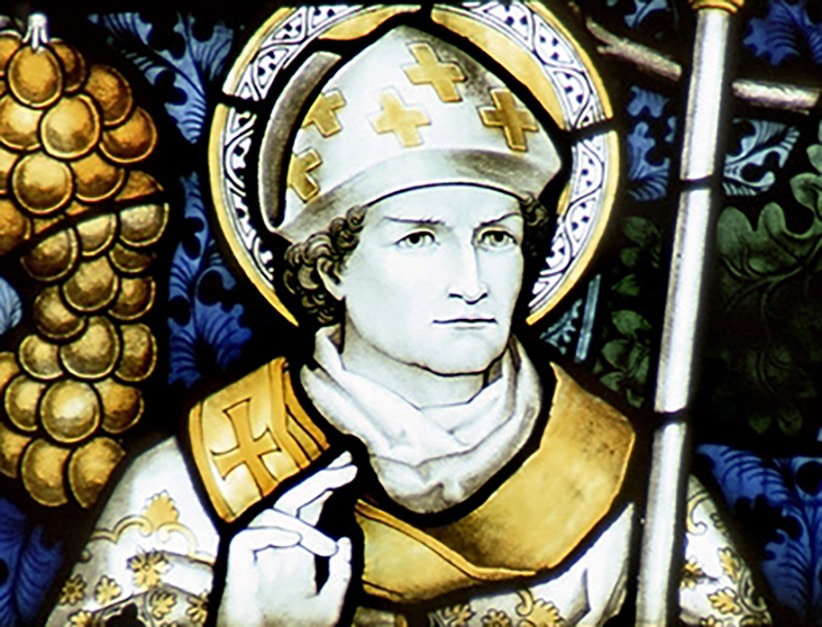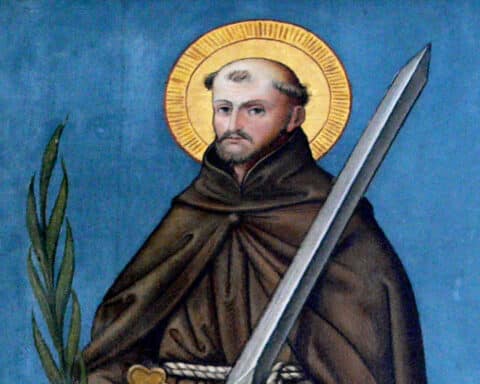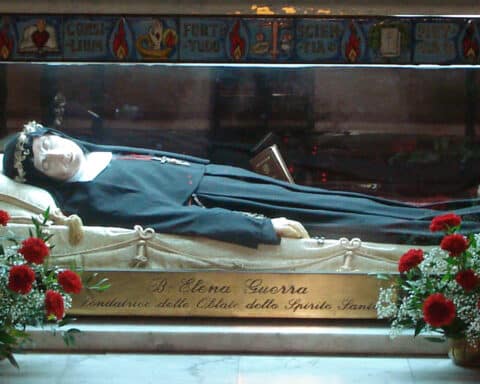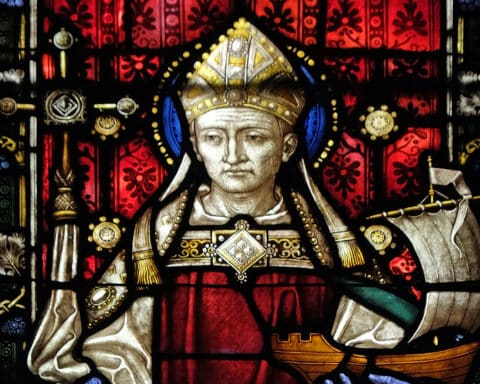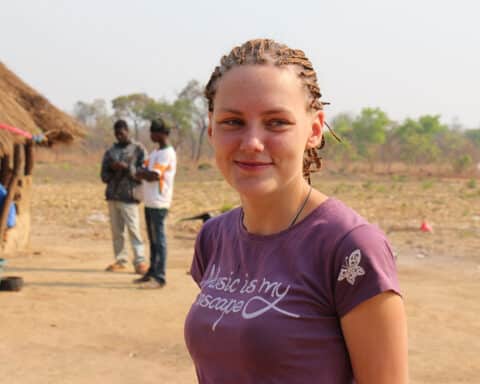St. Cyril of Jerusalem
Feast day: March 18
Born in A.D. 315, St. Cyril of Jerusalem is known for his constancy in faith at the time that the Arian heresy denying the divinity of Christ had spread throughout the Roman Empire. In an atmosphere where the Church was splintered, St. Cyril of Jerusalem was willing to be exiled three times within the course of approximately 20 years as he defended the faith. As a bishop, he endured slanderous accusations to the extent that one of St. Cyril’s exiles lasted 11 years.
Nevertheless, St. Cyril was still able to greatly influence the faith by participating in the First Council of Constantinople (A.D. 381), which defined the equality of the Holy Spirit with the Father and the Son. While some sources of that time cast doubt on his orthodoxy, others supported him, such as the Synodal Letter of A.D. 382 that followed the council. In this Letter addressed to the Roman Pontiff, the Eastern Bishops officially recognized Cyril’s flawless orthodoxy, the legitimacy of his episcopal ordination and the merits of his pastoral service, which ended with his death in A.D. 387.
St. Cyril of Jerusalem was declared a Doctor of the Church in 1883 for his 24 catechetical writings. The first 18 writings based on the Creed were given during Lent, and the concluding five instructed the newly baptized during the week after Easter. Delivered initially by St. Cyril in the Church of the Holy Sepulchre in Jerusalem, these first 18 writings include the prerequisites for baptism and discuss conversion from pagan morals. St. Cyril of Jerusalem explains to the catechumen the mystery of God’s plan through Christ’s saving actions in the Church: “You have been caught in the nets of the Church. Be taken alive, therefore; do not escape for it is Jesus who is fishing for you, not in order to kill you but to resurrect you after death. Indeed, you must die and rise again… Die to your sins and live to righteousness from this very day” (Procatechesis, 5).
Of the last five of St. Cyril’s so-called “mystagogical catecheses,” the last three focus on the Chrism, the Body and Blood of Christ and the Eucharistic Liturgy. On the real presence, St. Cyril is unambiguous: “Since He Himself has declared and said of the bread: This is My Body, who shall dare to doubt anymore? And when He asserts and says: This is My Blood, who shall ever hesitate and say it is not His Blood?” St. Cyril continues, “Do not think it mere bread and wine, for it is the Body and Blood of Christ, according to the Lord’s declaration. “Having learned this and being assured of it, that appears to be bread is not bread, though perceived by the taste, but the Body of Christ, and what appears to be wine is not wine, though the taste says so, but the Blood of Christ … strengthen thy heart, partaking of it as spiritual (food), and rejoice the face of thy soul.”
The basis of St. Cyril’s instruction on the Christian faith also served a polemic role against pagans and Manicheans by using an argument based on Old Testament promises in a language rich in imagery.
Reflection
Dear Jesus, increase my faith that I may boldly declare your presence in the Church through the sacraments. Let me be your light to bring others to you and into full communion in the Church you founded.
Prayer
O God, who through the Bishop Saint Cyril of Jerusalem
led your Church in a wonderful way
to a deeper sense of the mysteries of salvation,
grant us, through his intercession,
that we may so acknowledge your Son
as to have life ever more abundantly.
Through our Lord Jesus Christ, your Son,
who lives and reigns with you in the unity of the Holy Spirit,
God, for ever and ever.

